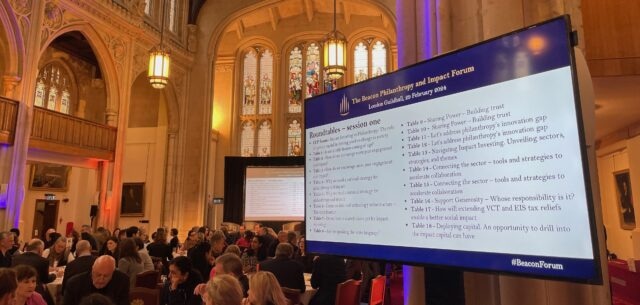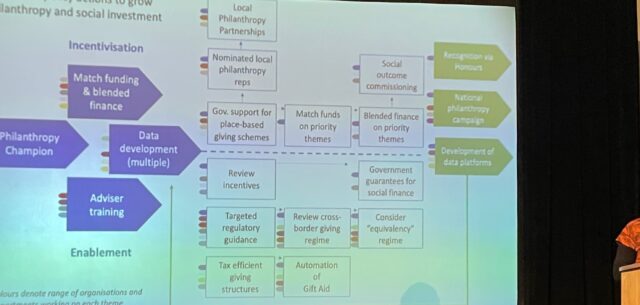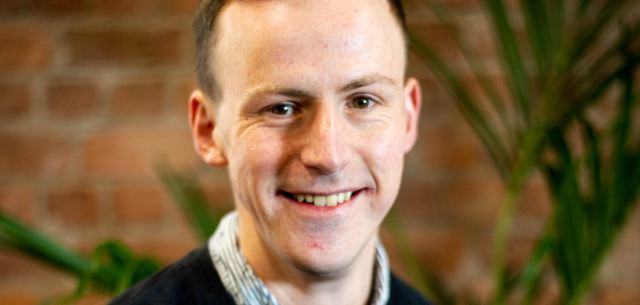Getting ahead of the curve – Responding to Covid-19

On 18 March 2020, the same day that schools closed in the UK, the Indigo Trust announced grants of £2.5 million linked to Covid-19. Will and Fran Perrin, founders of the Indigo Trust, were able to fund fast because of their experience and network across the UK philanthropy sector.
They had improved their philanthropic giving by working with New Philanthropy Capital and The Philanthropy Workshop, adding a philanthropic dimension to the strategy skills they had developed in their professional lives in the public sector.
How did The Indigo Trust respond quickly to Covid?
As the news ramped up in early March, it was apparent to the duo that the UK was heading into a once in a lifetime national emergency. Will had previously worked on international crisis analysis within government and had a good grounding in what would happen next. The country was heading toward an Italy-style disaster with generation-defining suffering.
During the first few days of the month, Fran and Will talked about how philanthropy could respond to the crisis. They came to the conclusion: “What is this money for if not for an emergency like this?” With this in mind, they decided to inject more of their personal money to fund substantial new grants.
“Philanthropy and charity are for the public good. An emergency changes brutally how one defines that. Philanthropists and foundations have to respond.”
The context within which their strategy had been set had changed overnight and a new strategy was needed. Basic information to hand suggested that suffering would be incident nationally in all communities and that essentials to life such as food were not being allocated well. They sought options that would impact at a local level across the UK. Speed of action was paramount. They wanted to get money out before the UK went up the curve and the capacity of the non-profit sector to respond was diminished. It was also clear to them that the amount they would need to give had to be large.
What adaptations did the trust have to make?
Indigo, with a team of 2.5 full time employees, did not have the capacity to make hundreds of small grants quickly enough. They used their knowledge of philanthropy to shape a response that reflected need and prioritised collaboration.
They asked the team at Indigo to prepare options for them focusing on additionality, and considering both local and national initiatives. They reached out to leaders at New Philanthropy Capital, The Philanthropy Workshop and the Association of Charitable Foundations to sense-check their ideas. They also alerted their financial managers to prepare funds.
On 18 March, as the UK got used to remote working, they had a call with their team to agree a first wave of funding to three organisations:
The National Emergencies Trust had been flagged by their colleagues in the philanthropy sector as a rapid response mechanism to filter funding to frontline delivery organisations via the UK Community Foundations. The grant to the Oxfordshire Community Foundation enabled them to use a similar approach to support needs in their local area.
Meanwhile, the Trussell Trust was responding to the challenges emerging from stockpiling and was an organisation that could absorb and redistribute a large grant.
Grants were decided and made in the next 48 hours.
These grants mark a radical shift for the Indigo Trust, which usually focuses on catalytic funding in the fields of justice, visual impairment and better grant making. However, as advocates of using data to inform decision-making (Fran is the founder of 360 Giving) they had facts at their fingertips to support this rapid change of tack.
“A dynamic change to different methodologies is what is needed now by all of us,” says Will, with flexibility and proactivity being the key.
He would encourage others to use the pathways that are already open to channel funds quickly to where they are needed most.
He adds that the Covid-19 will not disappear anytime soon and the long-term impact on communities and civil society has yet to be counted.
“We don’t know yet what the next two stages will be – there isn’t enough information. But we know once we get past the dreadful peak, then more will be needed to alleviate suffering, recover and rebuild.”






